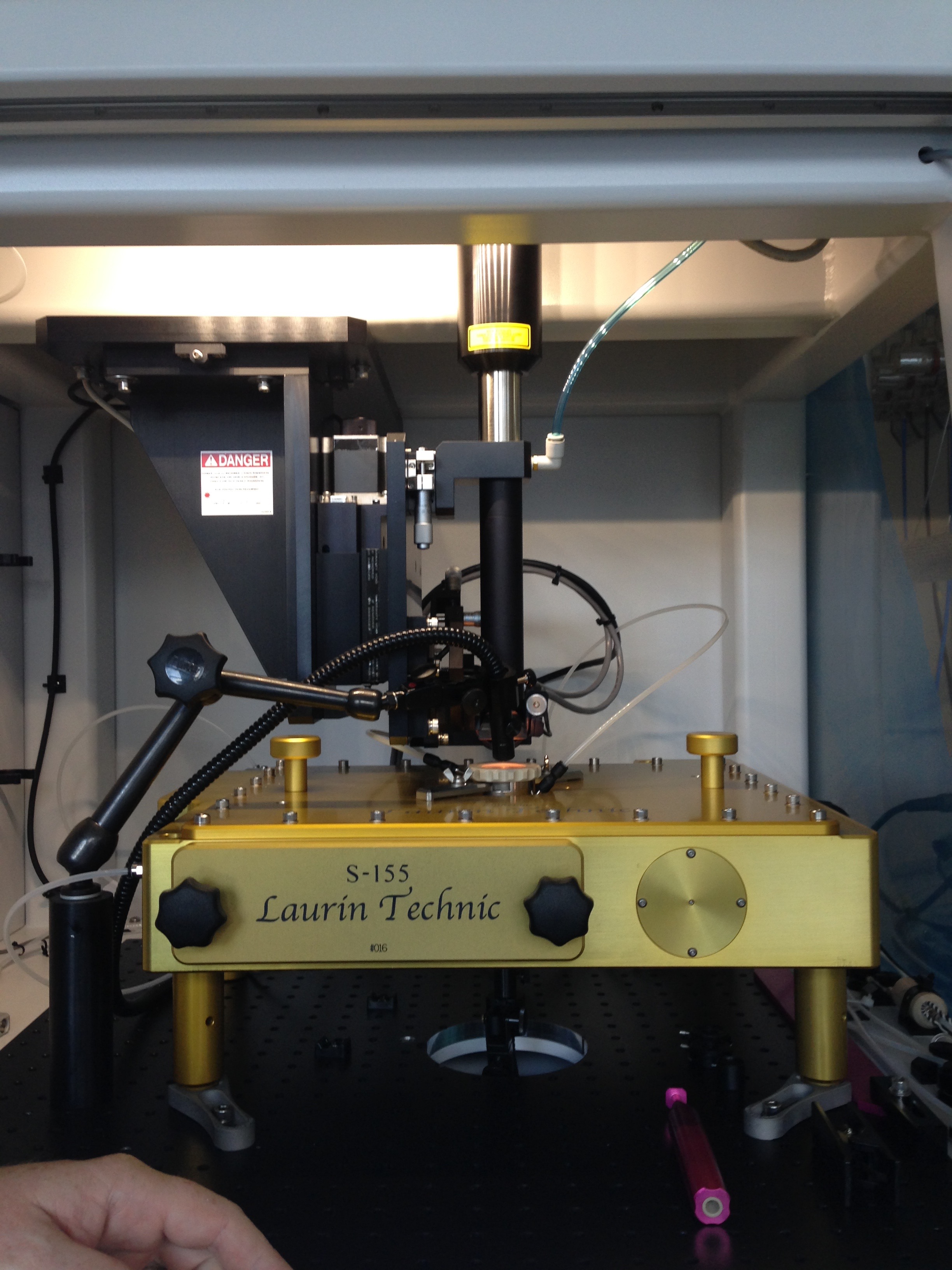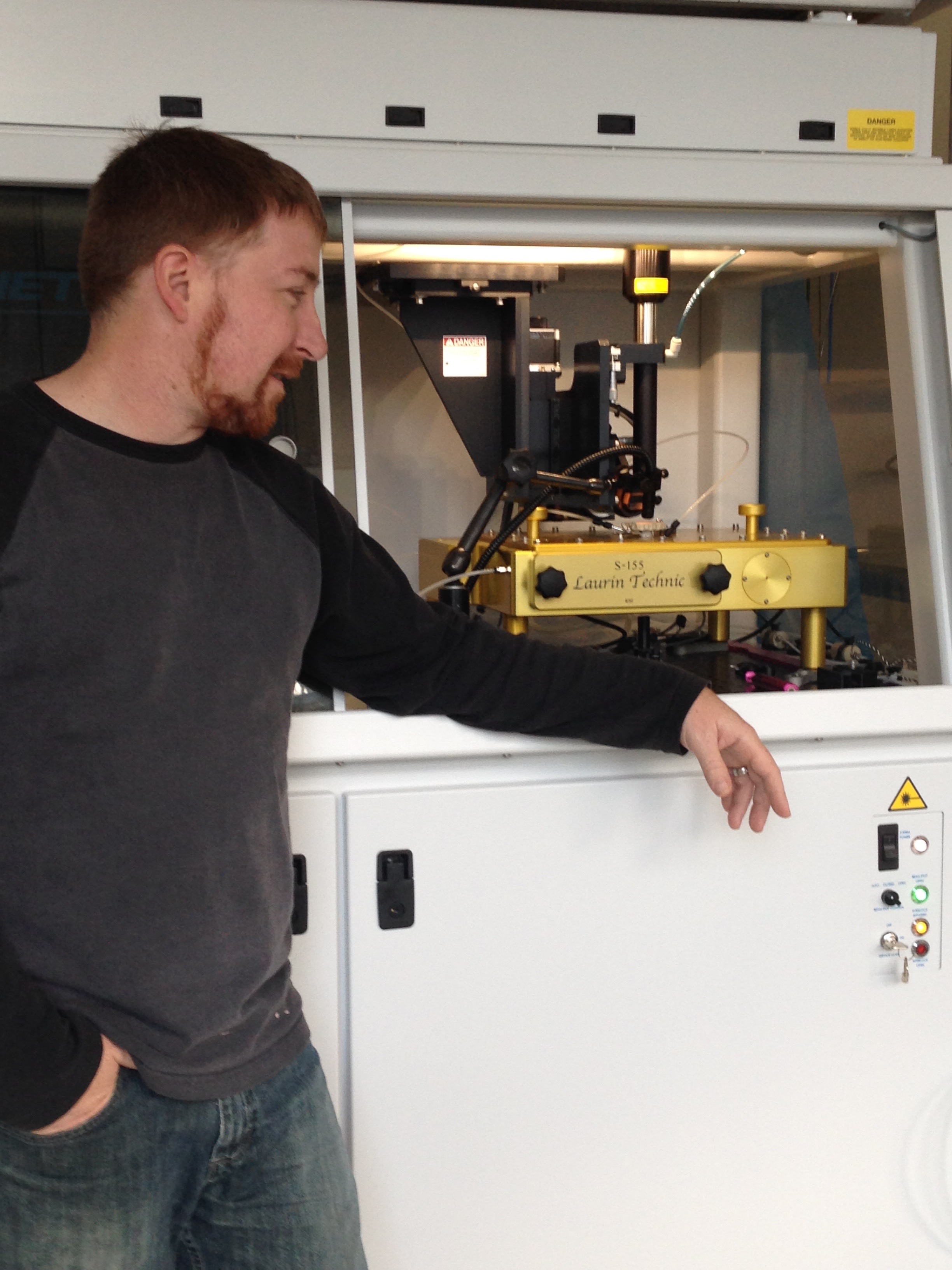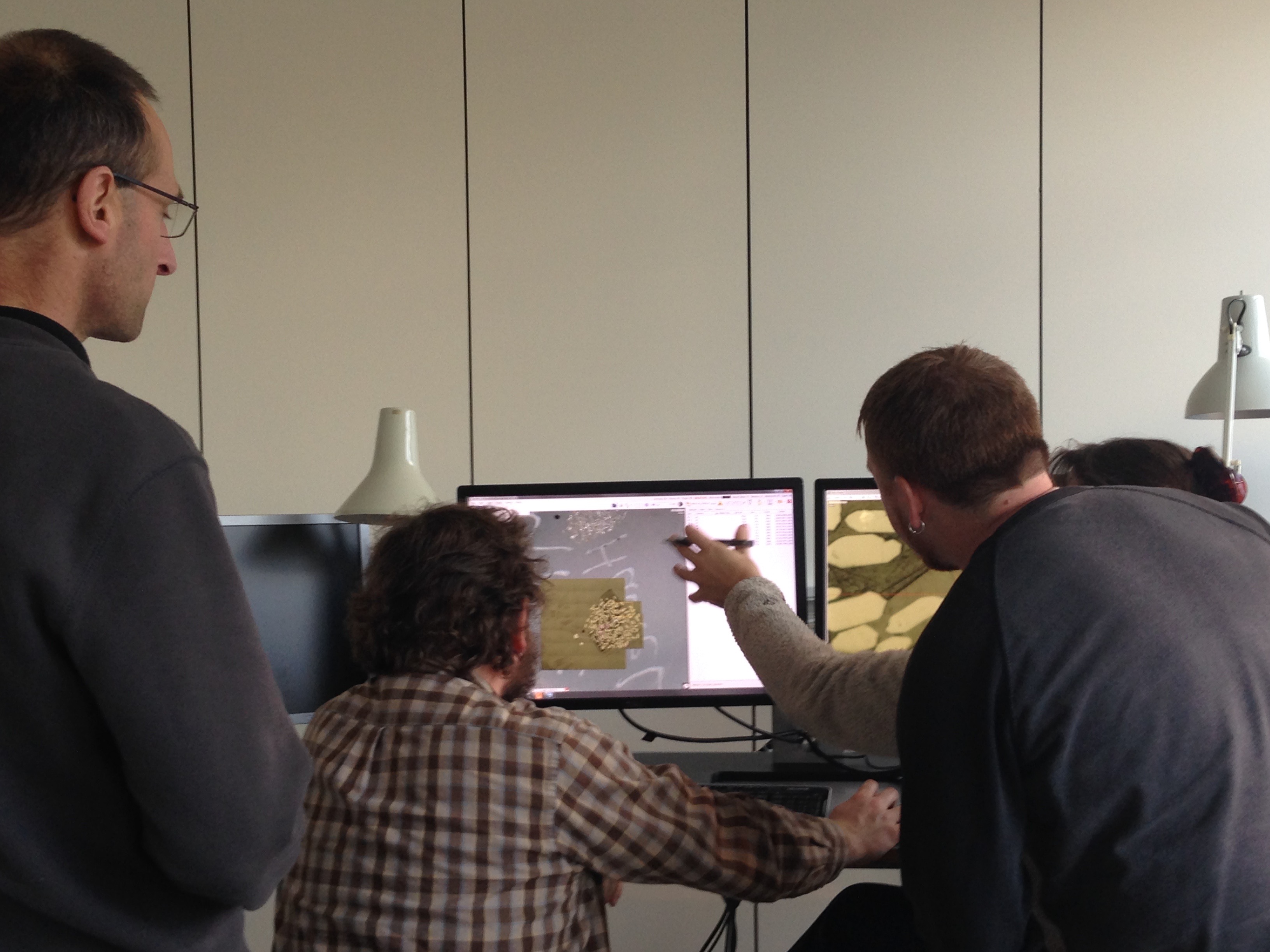Our new excimer laser ablation instrument from RESOlution has been installed!



What is LA-ICP-MS?
Laser Ablation - Inductively Coupled Plasma - Mass Spectrometry (LA-ICP-MS) is an analytical technique for measuring the elemental and isotopic composition of solid samples.
How does it work?
The solid sample is loaded into the ablation cell and hit with a focused laser beam at high flux (corresponding to the energy per unit surface). The carrier gas that constantly sweeps through the cell, carries the aerosol created by the ablation to the ICP-MS instrument. When the aerosol meets the 7000 degrees K plasma source in the front end of the ICP-MS, it ionizes and is analyzed for elemental composition in the same way as for liquid aerosols (see ICP-MS announcement for details). The main advantages to laser ablation are that it is practically non-destructive (laser spots down to 10 um), fast (less than 1 min analysis time) and can detect most elements at the ppb (parts per billion) level. Standards should match the sample material and have known concentrations that are then used to calibrate and calculate the concentrations of the elements in the unknown sample.
What can we measure using an ICP-MS?
LA-ICP-MS can be applied to many different materials of geological, chemical, biological, environmental, petrochemical, metallurgical, medical or archeological origin. Presently, studies are mainly focused on geological materials including rocks, minerals, volcanic glass, gemstones and metals, but also on low temperature minerals for archeological, environmental and biological studies, including corals, bones, teeth, stalagmites and fish-ear bones (= otoliths). Medical samples include bone, tissue, hair and bloodspots.
